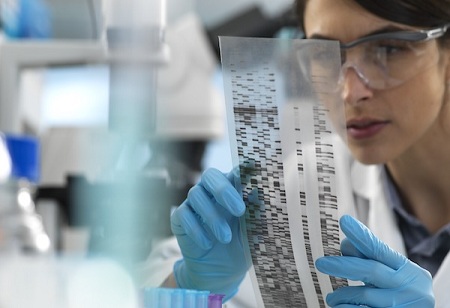Fiona Jerry | Monday, 22 May 2023

Genetic testing allows doctors to tailor treatments to individual patients, making them more effective and reducing side effects. Genetic testing also enables doctors to provide more accurate diagnoses, leading to better outcomes and improved quality of life. Additionally, genetic testing can help predict a person's risk of developing certain health conditions in the future.
This allows doctors to take a preemptive approach to managing a patient's health and proactively detect and treat diseases before they become serious.For instance, a genetic test could indicate that a person has an increased risk of developing type 2 diabetes, prompting the doctor to recommend lifestyle changes, such as increased exercise and improved diet, to reduce the risk. Genetic testing also can help doctors tailor treatments to individual patients, resulting in more effective treatment plans.
Furthermore, genetic testing can provide insights into a patient's ancestry and help identify potential genetic relatives. By understanding a patient's genetic makeup, doctors can identify risks for certain diseases and create tailored preventive measures that can help reduce the risk of developing them. Additionally, genetic testing can provide valuable information about a patient's family history, which can be used to develop personalized treatments and medications that are likely to be more effective. Finally, genetic testing can help to identify potential relatives, which can be beneficial for both medical and personal reasons. Let us explore how genetic testing is revolutionizing personalized medicine in the following paragraphs- Identify inherited diseases or disorders Genetic testing can also be used to identify inherited diseases or disorders, which can then be used to develop treatments tailored to an individual’s specific needs. Additionally, it can be used to provide insight into a person’s ancestry and family history. Genetic testing also provides information about the risk of developing certain conditions, and can inform decisions about lifestyle changes or medical interventions that can help reduce that risk. Genetic testing can also be used to screen embryos for genetic diseases, allowing for the pre-selection of embryos that are free of certain genetic diseases before implantation. This can help reduce the risk of passing on certain genetic disorders to future generations.
The importance of genetic testing cannot be stressed enough. It is a powerful tool that can be used to identify, diagnose, and treat genetic conditions, as well as help to prevent them. As such, it is an invaluable tool for modern healthcare. Make more informed decisions about treatment options Genetic testing can help to make more informed decisions about treatment options, predict drug efficacy, and facilitate early detection of diseases. It can also help to identify hereditary disorders and provide insight into the likelihood of developing certain diseases.
This can lead to better management of chronic conditions and can help to reduce the risk of developing life-threatening illnesses. It can also provide an understanding of family history and help to identify inherited traits. For instance, genetic testing can be used to identify mutations that may cause an increased risk of breast cancer or to detect if someone has a genetic disorder such as cystic fibrosis. Improves the accuracy of medical predictions By analyzing a person's genetic code, doctors can identify genetic markers that are associated with certain diseases. This allows them to more accurately predict which diseases a person may be at risk for, and provide more targeted treatments. This allows doctors to better tailor treatments to an individual's unique genetic profile, which can help improve the efficacy of those treatments. It can also reduce the risk of side effects, as doctors can adjust the dosage of medications based on a person's genetic makeup.
This can help to reduce the cost of treatments and improve patient outcomes. It also provides an opportunity to develop personalized preventative care programs, which can help to reduce the long-term costs associated with chronic diseases. For instance, a patient who is genetically predisposed to a particular disease could be regularly monitored and given lifestyle advice or medication to manage their risk. Overall, genetic testing could result in improved patient outcomes and lower care costs. Furthermore, AI-driven genetic testing has the potential to revolutionize personalized medicine.
It could help us identify diseases before they manifest, allowing for earlier and more effective treatments. Genetic testing could also enable us to identify our genetic vulnerabilities so we can make lifestyle changes to prevent those diseases before they manifest. AI-driven genetic testing could also be used to accurately predict a person's response to a given treatment, allowing for more personalized and effective treatments.